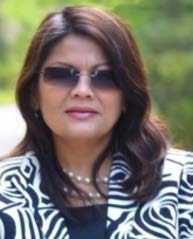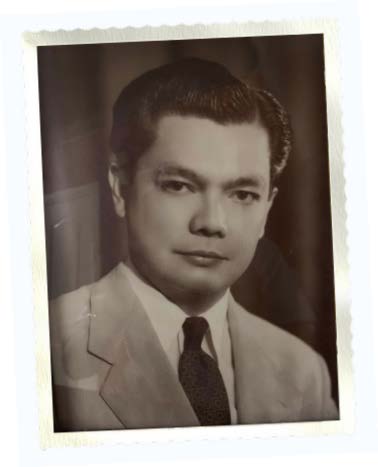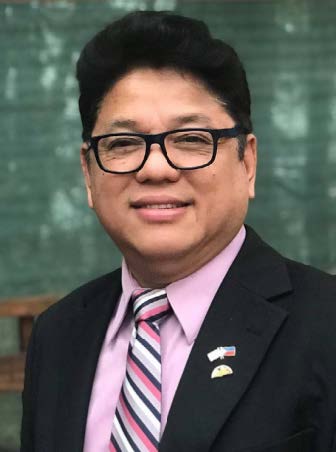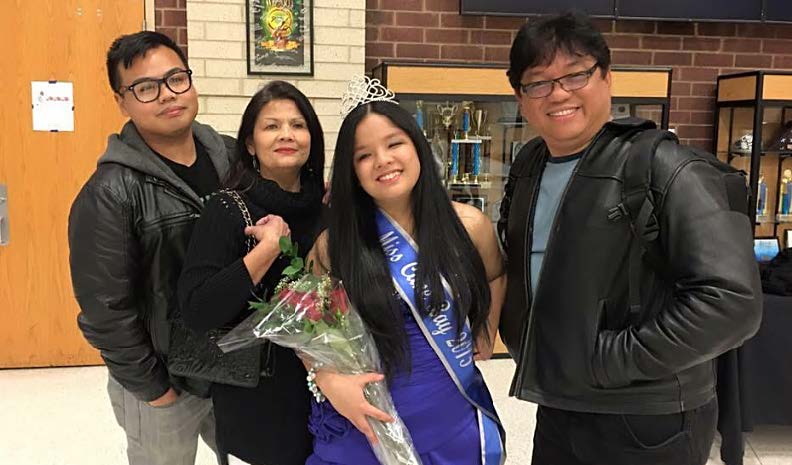CHRISTINA LLANES MABALOT
To this day, I hear Papa's voice in my dreams, saying: "You may not see very well, but you can speak and write. Cultivate those skills and society will pay attention to your success, not to your disability."

"Work your visual impairment to your advantage." These were my father's words of wisdom.
While most people think that having a disability is unfortunate, my father, Antonio, believed that it could be the catalyst for finding and developing one's gifts. That is, acknowledging what one can't do could positively result in intentionally identifying and maximizing what one can do best. He explained how most people without disabilities usually stumble across their areas of expertise far along in their lifetime. Some have articulated how they would have cultivated their gifts or talents early on, had they known they had such talents. But since they didn't perceive or experience disabilities or disadvantages, they didn't deem it necessary to focus on skill sets that could actually be their assets.
Papa, as I call my dear father, had said that it's one thing for someone to have a visual impairment, but it's unfortunate for that person not to see where one is going in life. Papa set me on the right track. He recognized my potential for speaking when I was yet a toddler, so he directed my steps. He used to tease me about how I started talking as soon as I was born. My father believed that this could one day lead to a public speaking career for me. As a matter of fact, he wanted me to follow his footsteps and become a lawyer someday. He built my foundation. He read me stories and bought me classic books with fonts large enough for me to read. He likewise advised me to try my hand at writing.
"Public speakers can only be as good as the content of their message," he used to say. My father delegated me as his personal secretary as soon as I could dial phone numbers on our rotary phone. A corporate lawyer, he had a long list of people for me to call to set appointments or provide updates about transactions. This was my very first on-the-job training, and it made me feel skilled and confident.
My siblings weren't treated differently. One day, my brothers asked my father how the clock operates. To my mother's shock, my father handed them a desk alarm clock to take apart and discover its workings. They didn't stop there. Their next object of interest was the transistor radio. My brothers must have dismantled every device that ran on batteries and electricity that one day there was no working device in the house. On the bright side, they were eventually building their own radios and stereo components following diagrams from a book that my father provided. This was how their skills in Information Technology evolved.

LASTING LEGACY: "While most people think that having a disability is unfortunate, my father believed that it could be the catalyst for finding and developing one's gifts."
Papa made studying so much fun. Every year, he gave a price for the one who got the highest grade-point average. This was how I acquired my first radio/cassette recorder. He also built me a personal study desk with a fluorescent light more prominent than the table. He drove us to and from school every day. We would play all sorts of silly games while stuck in the rush hour traffic to kill the monotony. One of us would always put dibs on the tastiest snack papa bought, leading to senseless arguments. What made these scenes enjoyable was that Papa joined these squabbles to inject humor.
Thanks to my father, my visual impairment has been the drive that's led me to develop my speaking and writing skills in the best possible way. I have to admit that I let him down when I didn't pursue Law as a profession, but when he realized that Special Education was my passion, he learned to respect my career path.
To this day, I hear Papa's voice in my dreams, saying: "You may not see very well, but you can speak and write. Cultivate those skills and society will pay attention to your success, not to your disability."
My father's words of wisdom are an enduring legacy that has shaped who I am today, as well as the lives of my students and my children. It is where I derived my slogan: "Discover the best in your child." I hope to pass it on to various communities, especially to persons with special needs, and down to succeeding generations.
MY CHILDREN'S FATHER
The day I met my husband, Silver, at a national officers' training conference organized by the Disabled People International was when my outlook on the sector of persons with special needs broadened. I had always been connected with agencies that provide services for the population with special needs, but Silver championed special needs organizations at the grassroots level. I have a visual disability and Silver is mobility impaired. Our cultures amalgamated, and the rest is history. I had found a friend and a partner, not only in advancing the cause of the special needs community, but also in chasing my dreams in life.


PACKAGE DEAL: The author's husband, Silver; with his wife and children Paulo and Jen. "Silver was accepting of the fact that our kids could inherit my congenital condition, aniridia. Most of his friends and family objected to his decision, but their protests fell on deaf ears."
LOVE CONQUERS ALL BARRIERS
I could hardly believe my ears when Silver assured me that he was accepting of the fact that our kids could possibly inherit my congenital condition, aniridia. I discouraged him, but he didn't change his mind about marriage and raising a family. Most of his friends and family objected to his decision, but their protests fell on deaf ears. I guess we both drew comfort from the fact that my first child was sighted and never thought that we'd actually have a child with special needs. "It's a package deal," Silver said in assurance.
Society often thinks that parents with special needs who are actively involved in the special needs community would be ready when and if children with special needs are born to them. This was not true in our case. We both fell into different levels and manifestations of depression when Jem, our child with visual impairment, was born. But even when Silver was yet in that state of mind, he never let Jem out of his sight. She was the apple of his eye. In fact, he overprotected and even spoiled her. It's not that Silver didn't know any better, but I guess, when one's role expands from being just an advocate to becoming a parent of a special needs child, rules tend to be overlooked. This has made it so easy for me to end arguments over Jem's misbehavior. I'll usually just say, "Well you spoiled her…"
Silver passed on to our kids his own father's parenting skills. He fondly recalls how his dad used to carry him on his shoulders when they'd go places. He did the same with Jem. Wherever he went, Silver had the baby carrier strapped on to him so he could take Jem along. Some of the meetings included band practices. Silver, a singer and musician by heart, regularly led worship at church. Jem took on her father's talents. As a matter of fact, Paulo, our son, also acquired Silver's love for singing and playing musical instruments. During the family's leisure time, they jam and sound like pros while I cheer them on and try hard not to sing along, much as I want to, lest I introduce cacophony into the mix.
That Silver is a workaholic is an understatement. In fact, he doesn't drop what he's doing until a task is completed, even if it means staying up all night. He's almost like a machine. An engineer by profession, he built and remodeled the houses we lived in. He's also the manager in our finances, chief operations officer and administrator in our organizations, master of the barbecue grill, a chef in the kitchen, king of the backyard, the do-it-yourself handyman and – are you ready for this – my makeup artist. Very well-meaning, Silver wants to train his children to be like him. In doing so, he ends up seeming like a taskmaster. But I highly doubt if anybody could ever work precisely the way he does. There is a universe of differences in per sonality types and working styles within our family.
Two men… two fathers… two generations. My father was a man of words, my husband is a man of action. My father gave me lenses from which I could perceive my visual impairment from a winner's perspective. My husband partnered with me to make me an actual winner. Both men made me who I am today. This continuing legacy of fatherhood will be passed on to our children, and to our children's children.•
HEARTSIGHT
Christina Llanes Mabalot is physically blind from aniridia, but has a vision. She enjoys touching people's lives to bring out the best in them. "Heartsight" explains her ability to see with her heart. Christina earned her B.A. degree and Masters in Education from the University of the Philippines, Diliman, specializing in Early Intervention for the Blind. She later received Educational Leadership training through the Hilton-Perkins International Program in Massachusetts, then worked as consultant for programs for the VI Helen Keller International. She has championed Inclusive Education, Early Intervention, Capability Building and Disability Sensitivity programs. She was twice a winner in the International Speech contests of the Toastmasters International (District 75) and has been a professional inspirational and motivational speaker. Christina is blissfully married to Silver Mabalot, also physically impaired, her partner in advancing noble causes. Their children are Paulo and Jem, who has aniridia.